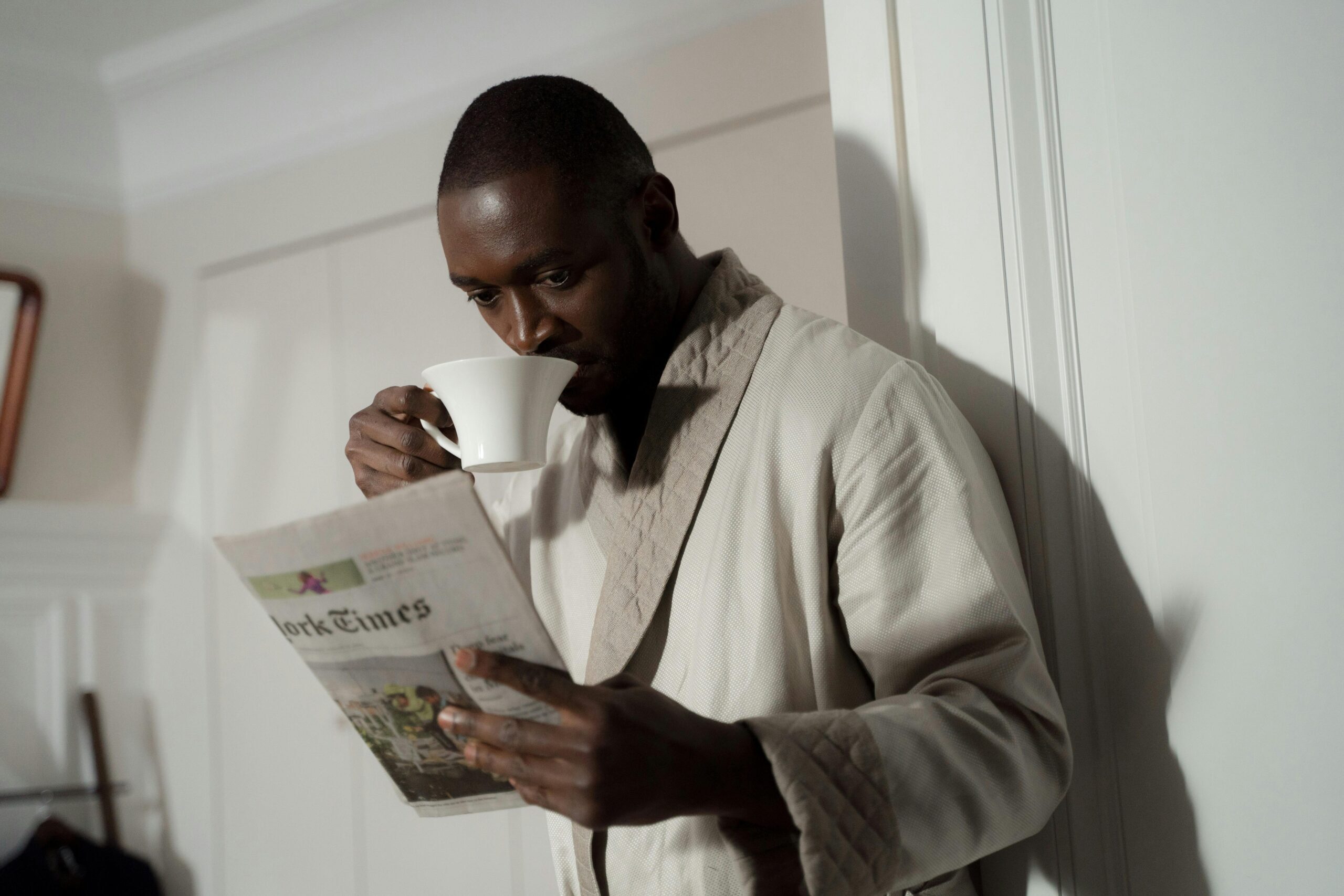16 Personality Types of Never Have I Ever Characters
Never Have I Ever is a Netflix series that follows the life of high schooler Devi Vishwakumar at Sherman Oaks High as she navigates the ups and downs of teenage life, all whilst dealing with the loss of her father. The show has drawn in a wide audience with its unique characters and witty lines. It’s relatable enough to portray the familiarity of a typical high school but also entertaining enough to keep people hooked. Let me tell you, Never Have I Ever made me very thankful that my own teenage years are behind me. Phew, there are a lot of things to learn at that age, and you can only learn those things by living through them.

Never Have I Ever is a Netflix series that follows the life of high schooler Devi Vishwakumar at Sherman Oaks High as she navigates the ups and downs of teenage life, all whilst dealing with the loss of her father. The show has drawn in a wide audience with its unique characters and witty lines. It’s relatable enough to portray the familiarity of a typical high school but also entertaining enough to keep people hooked. Let me tell you, Never Have I Ever made me very thankful that my own teenage years are behind me. Phew, there are a lot of things to learn at that age, and you can only learn those things by living through them.
One of the beautiful things about the show is how it portrays different characters in a consistent yet nuanced way. Each of the main characters goes through a journey of self-discovery and growth, and we, the viewers, are able to see exactly which experiences shaped them into the individuals they are by the end. So, let’s take a look at the 16 personality types of the Never Have I Ever characters and how they contribute to the show’s overall storyline.
SPOILER ALERT: we talk about scenes and arcs from all four seasons, so proceed with caution if you haven’t watched them yet.

1. Devi Vishwakumar: ESFP
Devi, the main character of the show, is an ESFP personality type. She thrives in social situations, makes friends easily, and is open to new experiences. However, she also tends to act impulsively without thinking of the consequences, which often leads to the conflicts with her friends and family that make up many of the storylines. Emotions play a significant role in Devi’s decision-making process, and at the start of the series, she struggles to deal with her grief and anger about her father’s death. Throughout the show, we see Devi grow and mature as she learns to navigate her emotions in a healthier way. Her final therapy session is a deeply moving scene that shows just how much she has grown and matured.

2. Eleanor Wong: ENFP
Eleanor Wong, one of Devi’s best friends, is a stereotypical ENFP. She is deeply passionate about acting and has a natural flair for drama. Individuality is important to Eleanor, which can be seen by her choice of (often brightly colored) clothes and the way she always listens to her heart. She has strong morals and isn’t afraid to speak her mind, even if it means going against the crowd. Eleanor falls for people quickly and is all about romantic gestures, but she also values her independence and won’t change herself for anyone. Her and Trent are a great example of a couple who find a healthy balance between love and individuality.

3. Fabiola Torres: INTP
Fabiola, Devi’s other best friend, is an INTP. She is intelligent, analytical, and loves to solve problems. As the leader of Sherman Oaks High’s robotics club, her intelligence and innovation shine through, ultimately landing her a spot at Howard University. Fabiola starts off as a shy character, struggling with her identity and coming out as gay. Throughout the show, she becomes more confident and assertive, standing up for herself and what she believes in. During the final episodes, she takes charge and ensures that the robotics club is welcoming to female students as well. The way she stands up for this cause without hesitation paints an inspiring picture of strength and growth.

4. Paxton Hall-Yoshida: ISTP
Paxton, the popular jock and Devi’s original love interest, is an ISTP. He is effortlessly cool and isn’t phased by much. He doesn’t seek the spotlight, but the spotlight often finds him due to his good looks and athletic abilities. In true ISTP style, he enjoys playing video games with his friends in his man cave. Paxton doesn’t open up easily, but we see glimpses of his vulnerability as he navigates dropping out of ASU and his transition to working as an assistant coach at the school he once was the star of. Finding his feet and what makes him happy is an important part of his character arc, as is his relationship with Devi. Going from a fling to a genuine relationship to close friends, Paxton and Devi’s dynamic is a great representation of how those special connections often stay with us throughout life, even if they don’t turn out quite the way we expect them to.

5. Ben Gross: ESTJ
Ben, Devi’s academic rival and true love interest, is an ESTJ. He is driven, ambitious, and unafraid to speak his mind. In true ESTJ fashion, he is a natural leader and enjoys taking charge. His quick-witted and sarcastic remarks make for some of the show’s best lines, but they can also be a defense mechanism for his insecurities. When we first meet Ben, he comes off as arrogant and unlikable, but as we learn more about him and his family dynamics, we see a softer side to him. He isn’t the best at dealing with his feelings, which leads to some misunderstandings with Devi. But in the final episode when he says he “likes” her, then corrects himself to “loves” her, we see that he is capable of being vulnerable and expressing his true feelings.

6. Nalini Vishwakumar: ISTJ
Nalini, Devi’s mother and a dermatologist, is an ISTJ. She is a strict parent who values tradition and order. She has a practical and non-nonsense attitude that sometimes clashes with her daughter’s emotional decisions. It’s clear from the flashbacks that Devi’s dad, Mohan, who passed away, was the more fun-loving and spontaneous parent, while Nalini took on a more disciplinary role. However, as Nalini struggles to cope with her husband’s death and Devi’s rebellious behavior, we see that her need for control really stems from wanting what’s best for her family. Fortunately, Nalini has a support network that reminds her not to always be so tough on herself or her daughter. Seeing her laugh and joke with her new boyfriend at the end of the show represents a positive shift towards a more balanced, happy life.

7. Aneesa Qureshi: ENFJ
Aneesa, a student who joins Sherman Oaks High in season 2, is an ENFJ. She is confident, charismatic, and empathetic. She effortlessly wins over her peers and teachers, and her genuine care for others is very clear. While Devi is initially jealous of Aneesa’s popularity and her budding romance with Ben, she ultimately becomes friends with her. Aneesa then tests out a relationship with Fabiola. Despite the fact that it doesn’t work out, Aneesa remains a positive influence on her and helps her come out of her shell. You don’t get much more ENFJ than that!

8. Nirmal Vishwakumar: ESFJ
Nirmal, Devi’s paternal grandmother and Mohan’s mother, is an ESFJ. She is a traditional Indian woman who values her family and community above all else. She cares about what others think and her standing in society. However, she is also thoughtful and nurturing towards her family, especially Devi. She encourages Nalini to move on from Mohan’s death by dating other people, showing her deep understanding of the need for companionship and love. While she can be sassy and a little judgmental at times, Nirmal is a loving and supportive matriarch of the family. Her own storyline of finding love later in life is a reminder that it’s never too late.

9. Mohan Vishwakumar: ENFP
Mohan, Devi’s father who passed away before the events of the show, is a true ENFP. Through flashbacks and stories told by other characters, we see that he was a free-spirited, fun-loving man with a big heart. He was an eternal optimist who embraced his move to the US and was always thinking about the future. Mohan’s open-minded, supportive, and loving nature plays a huge role in Devi’s life and outlook, and even in his absence, his presence is felt throughout the show. His death had a profound effect on his family, but his spirit lives on through their memories and actions. As the show progresses, the grieving process shifts from sadness and shock to acceptance and fond memories.

10. Trent Harrison: ESFP
Trent, Paxton’s best friend and one of the cool kids, is an ESFP. He is carefree, outgoing, and always up for a good time. He enjoys partying, but he has a softer side when it comes to his friendship with Paxton and his romance with Eleanor. While he might seem shallow at first, we get to see his depth and sensitivity as the show progresses. Between supporting Paxton through his tough times, encouraging Eleanor to pursue her dreams, and even creating a safe space for Ben to open up while high on drugs, Trent shows that being an ESFP isn’t just about having fun but also caring for others and connecting on a deeper level. His presence adds a unique mix of lighthearted and heartwarming moments to the show.

11. Dr. Jamie Ryan: ENFJ
Last but not least, we have Dr. Jamie Ryan, Devi’s therapist, who is an ENFJ. While she doesn’t have a huge amount of screen time, she consistently pops up throughout the show as a guiding force for Devi. As an ENFJ, Dr. Jamie is intuitive and empathetic and uses her understanding of human behavior to help Devi understand her own feelings and motivations. But she isn’t a pushover—she can be pretty tough on Devi when she needs to be. Dr. Ryan is a necessary voice of reason in Devi’s life who, in true ENFJ style, balances tough love with compassion and understanding. She also gives Devi (and the audience) some great advice at various points in the show and her character highlights the benefit of hearing a fresh perspective.
Final thoughts on 16 Personalities of Never Have I Ever Characters
The characters in Never Have I Ever are unique and complex individuals, as shown by their diverse personalities. Through their interactions and development throughout the show, we see that they each have their own flaws, struggles, and strengths. They are also a great fictional representation of how many personality traits come with both positive and negative aspects.
Despite their differences, these characters come together to form a dynamic and relatable group that reflects the complexities of real-life relationships. Whether you relate to Devi’s fiery personality or Nirmal’s traditional values, there is something to learn from each character’s journey in “Never Have I Ever.” So let’s celebrate these characters for who they are and the lessons they teach us about life, love, and growing up.


